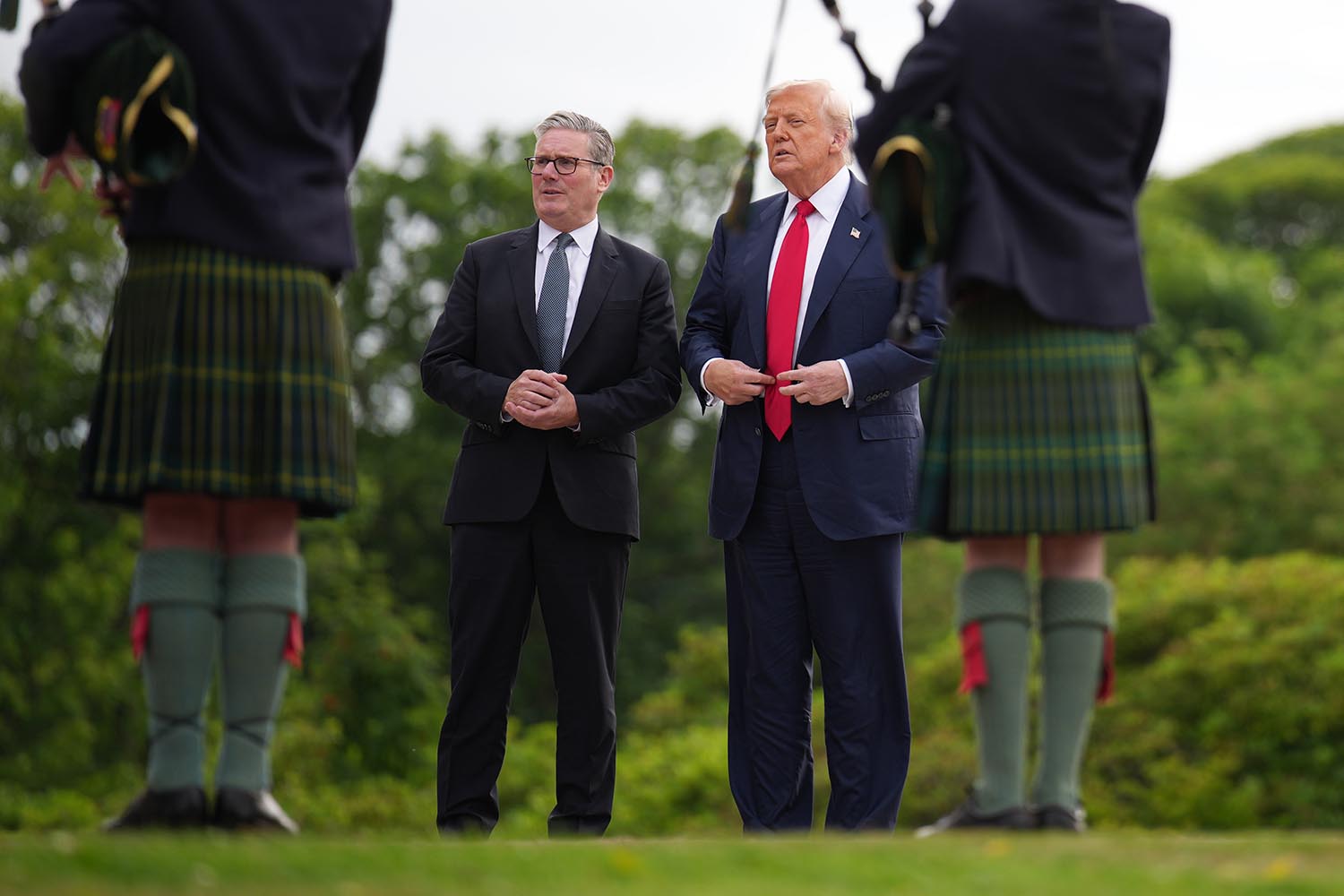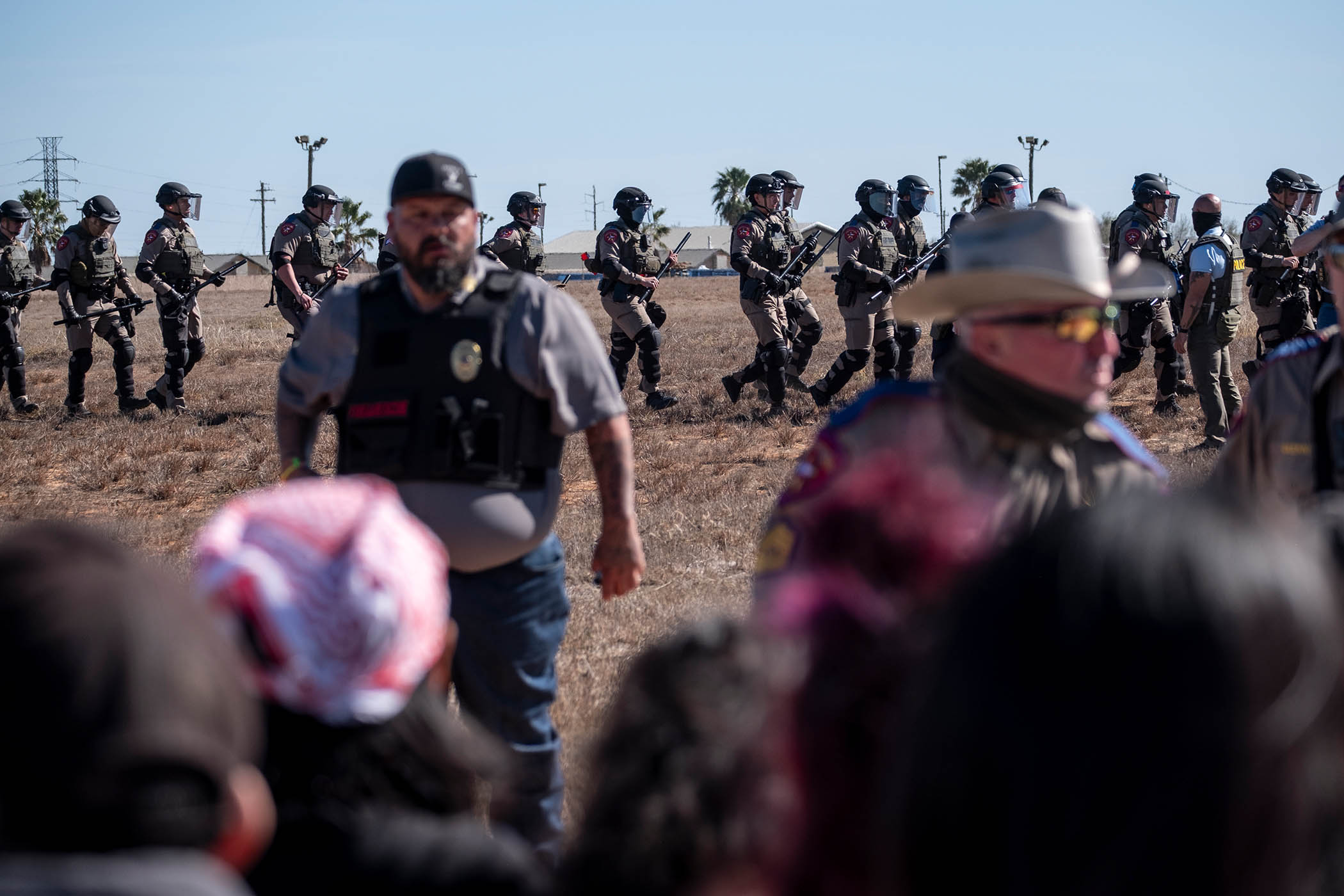Leaders make some decisions because they really want to. They make others because they feel they really don’t have another choice. It is in the latter bucket that we should place Sir Keir Starmer’s important shift on the recognition of Palestinian statehood.
The principle has been Labour policy for more than a decade, but the prime minister has previously cleaved to the traditional Foreign Office view that the UK only recognises states that exist. He has also believed that recognition should be held back for a time when it might have significant diplomatic impact on the path to a long-term and comprehensive solution to the conflict. As recently as the weekend, Starmer was still sounding negative about moving any faster.
Fierce domestic pressure and moves by other leaders both played their part in inducing the change which he announced with the full panoply of a Downing Street news conference. The horrors being perpetrated in Gaza have intensified the feelings among the prime minister’s MPs and party members that there had to be a shift. Starmer explicitly acknowledged that pressure by saying the change had been impelled by the “increasingly intolerable” situation in Gaza. Allies of David Lammy, the foreign secretary, say he has been urging the step on Starmer for some time. The foreign secretary enjoyed the support of other senior ministers – including Angela Rayner and Yvette Cooper – when the cabinet held an emergency meeting on Tuesday. Loyalist ministers whom Starmer takes seriously – including Shabana Mahmood and Wes Streeting – were pressing for the same. The health secretary has gone public about it, calling for recognition while there is “still a state of Palestine left to recognise”. Polling suggests that the number of voters wanting the government to recognise Palestine outnumber those opposed by more than three to one. More than 130 Labour MPs signed a letter to the prime minister demanding a shift. A leader already faced with a groaning plate of fissures and challenges didn’t want to be out of step with so much of his party on this issue.
Further pressure had come from Emmanuel Macron’s announcement that France will recognise Palestine at the UN general assembly in September. During his visit to Scotland, Donald Trump encouraged the shift by giving advance indication to No 10 that it wouldn’t make him angry. Indeed, following Starmer’s official announcement, the US president was low-key in his response: “That’s OK. It doesn’t mean I have to agree.”
One of the fiercest contentions is about the caveats the prime minister has attached. No 10 says the UK will recognise Palestine at the UN unless Israel agrees to a ceasefire, renounces any intention to make annexations in the West Bank and takes “substantive steps” to end the humanitarian catastrophe in Gaza by allowing the supply of UN aid. The UK government has also reiterated its demands that Hamas immediately releases all the remaining hostages, signs up to a ceasefire and accepts it will play no part in the future administration of Gaza.
The most predictable response has been the one from the Israeli government, which has reacted with flat rejection and fiery denunciation. “Starmer rewards Hamas’s monstrous terrorism and punishes its victims,” says Israel’s prime minister, Benjamin Netanyahu, a position being adopted by Nigel Farage and much of the Conservative party. While from the left, the greens and the Lib Dems, is the criticism that the prime minister is wrong to treat recognition of Palestinian statehood as a bargaining chip by making it contingent on how Israel behaves. Sarah Champion, the Labour chair of the international development select committee, says she is “troubled” by the conditions.
On the positive side of the slate, Starmer has moved to a position which his party, his ministers and his MPs will generally feel a little more comfortable defending. If, as seems hugely likely, the UK recognises Palestine, it will put the UK on the same page as the 140 or so countries that already do so. On the negative, his conditions have provoked quite a lot of anger and consternation, a sustainable resolution to the conflict looks more remote than ever, and this may ultimately underline how little leverage the UK has to influence events.
Photograph by Andrew Harnik/Getty
Newsletters
Choose the newsletters you want to receive
View more
For information about how The Observer protects your data, read our Privacy Policy
Related articles:



